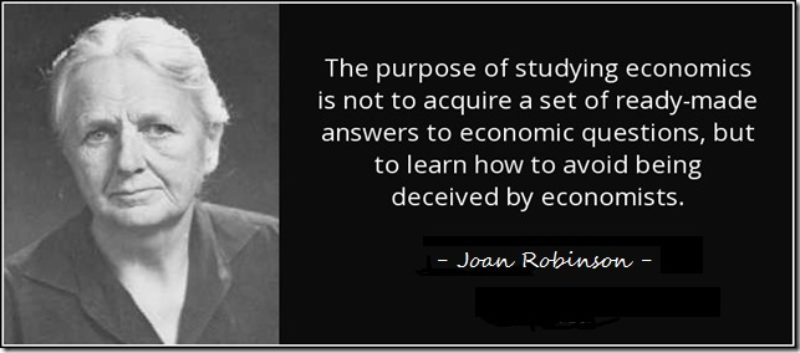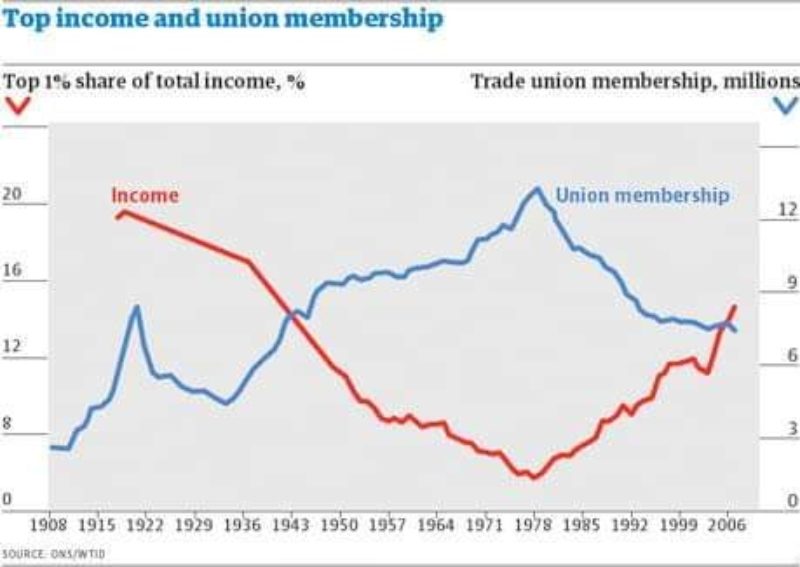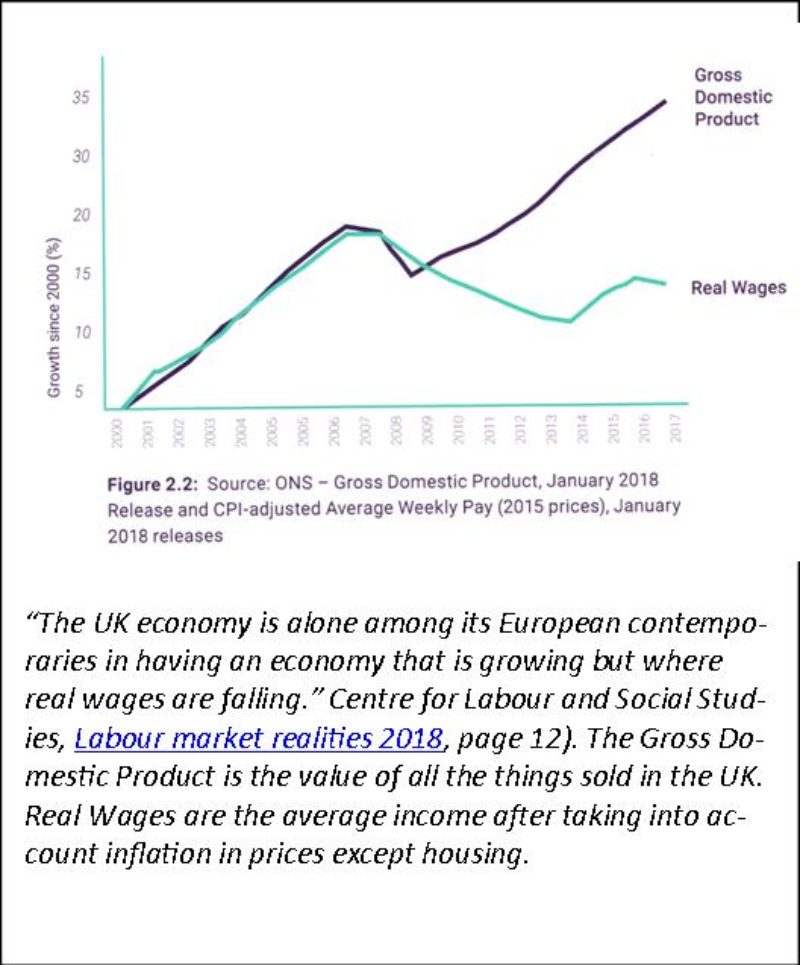
Here are three lessons I learned from Shipley’s classes on economics and democracy, which used materials that can be found at the bottom of the page.
Insecurity in the workplace is the expected norm today – and the solution is in the word ‘today’. The rules and rights that can make working conditions much more comfortable but hardly exist today in the UK, were in place in the UK a generation ago. They are considered the expected standard by such ‘radical’ groups like the International Labour Organisation which is funded by most governments including that of the UK itself.
Collective bargaining between trade unions and employers has reduced from 82% to 23% in a working lifetime. That lack of balance is directly related to inequality, as the chart below demonstrates: union membership means reduced inequality, as do the minimum wage and the wages councils that were creations of past Labour governments.

Banks make money by spending not lending. Money trickles up to their profits, rather than trickling down. There are alternatives: a National Investment Bank could loan to businesses that produce, can directly invest in public works, and can be accountable to parliament rather than to private investors.
As part of the preparation for a visit to Shipley by John McDonnell, the next Chancellor of the Exchequer, the classes highlighted the difference in approaches between on the one hand the current government and its predecessors for four decades, and on the other hand the Labour policies of the 2017 election manifesto.

We have had decades of economic development that hangs on the coat-tails of financial profit-makers. Even after a crash, the government’s policies have squeezed its own services and the pay of its employees in order to pay off banks’ debts. The ‘economy’ has recovered, but not real wages, as the next two charts show. The EU has not saved the UK but coincided with this approach in Greece, Portugal and Italy. In that sense Brexit is a side issue compared to the need for wholly new priorities for government’s role in economic development.
If wealth doesn’t trickle down from greater profits, where does it come from? It is the traditional socialist view that workers make wealth. Workers produce more than they need to live on. It is the surplus value that workers produce which is appropriated by the employer for their own purposes.
The employer may be made accountable by National Insurance and corporation tax which takes some of that surplus to distribute as health, education and other services to secure basic living standards for all. Employment law also can also make sure that the surplus can only be taken by employers after a decent minimum wage and working conditions have been provided.
Labour policies will also involve workers through their trade unions in setting minimum wages and conditions that can apply across the whole industry – this is the meaning of sectoral collective bargaining. In our classes we learned from an FBU member how collective bargaining works in the Fire Services sector.
Even the OECD, western governments’ vehicle for economic co-operation, argues that polices “for the most, not the few” are what will reduce inequality.
Labour’s economics is mainstream, with aims of reducing inequality and producing more of what people need.
Ludi Simpson – Shipley Branch member December 2018
Please note that member blog posts do not necessarily represent national or local Labour Party policy.
Course documents
Advert Economics and Democracy.pdf
Session Plans.pdf
1. Inequality What happened to GDP and wages after the crash.pdf
1. Inequality Exercise Labour Policies that reduce inequality.pdf
1. Inequality Slides Who Creates Wealth.pdf
2. Work Sectoral Collective Bargaining IER factsheets.pdf
2. Work Exercise Labour policies on rights at work.pdf
3. Banks Factsheet – banks & democracy Labour policies.pdf
3. Banks Responses to questions on the economy.pdf
3. Banks Channel 4 fact check GDP under Labour and Tories.pdf
Extra exercise on Forms of Ownership.pdf
Advert Arts Workshops.pdf
VideosEconomicsDemocracy.pdf

